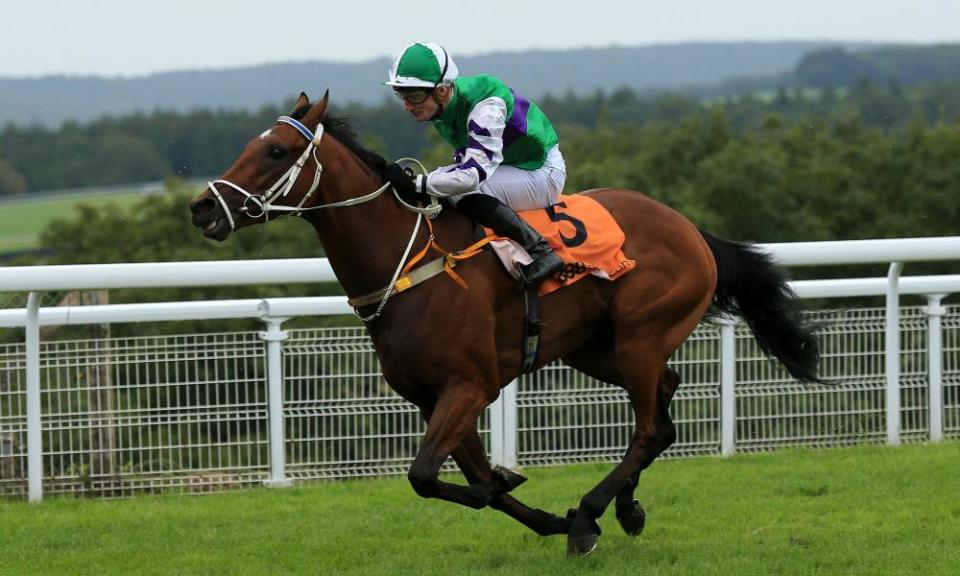Talking Horses: Tylicky’s £6m claim has wider implications for racing

Outcome of the former jockey’s damages claim, around a fall which left him in a wheelchair, could have major ramifications
While the British Horseracing Authority’s disciplinary panel considered whether Robbie Dunne had subjected fellow rider Bryony Frost to a lengthy campaign of bullying and harassment last week, the life-changing impact of a few seconds at Kempton Park in October 2016 was the subject of intense scrutiny less than a mile away at the High Court on the Strand. Both cases raise issues which could reverberate through racing, and perhaps also the wider sporting world, for years to come.
The BHA panel on the Dunne-Frost case – Dunne has denied all but one of the allegations – will continue to hear evidence on Tuesday. But the High Court case in which former jockey Freddy Tylicki is claiming £6m in damages from Graham Gibbons, as the result of a fall which left him confined to a wheelchair five years ago, closed on Friday, with a verdict expected before Christmas.
Related: Bryony Frost triumphs in Tingle Creek as Greaneteen grabs glory
The current rider Jim Crowley, who also suffered a fall in the same incident when Tylicki, on Nellie Deen, clipped heels with Gibbons’s mount Madame Butterfly on the home turn, was among those to give evidence on Tylicki’s behalf in the case, along with another former champion, Ryan Moore, and the veteran TV pundit and race-reader, Jim McGrath.
Crowley told the court that he had smelt alcohol on Gibbons’s breath on the day of the incident, a claim questioned by Gibbons. Moore, brought in as an expert witness, insisted that the rider had been negligent in failing to ensure Nellie Deen had enough room to negotiate the turn. McGrath, meanwhile, told the court that the incident was “easily avoidable”, and that Gibbons should have been found guilty of dangerous riding by the race day stewards. Instead, the officials decided that Tylicki’s fall was “accidental” and took no further action.
The two riders directly involved in the case gave very different accounts of the incident to the court. Tylicki said that he uttered a “shout for survival”, yelling “Gibbo!”, as he felt Madame Butterfly squeeze him up against the rail. “I knew what was going to happen next,” he said, “but there was no response”.
Gibbons, meanwhile, insisted that his mount had been no more than half-a-horse’s width from the rail going around the turn, denying room for Tylicki to make a move up the inner, and that he had no idea his fellow rider was on his inside until he heard his shout.
For the claim to succeed, Tylicki and his legal team must satisfy Judge Karen Walden-Smith that Gibbons neglected his duty of care to fellow riders. The obvious precedent for the judge to consider as she weighs up the evidence is a case from 2001, in which a former jump jockey, Peter Caldwell, sued Adrian Maguire and Mick Fitzgerald over a fall at Hexham in 1994 which left him with career-ending spinal and head injuries.
At the time, the case was believed to be the first of its kind. Caldwell’s claim was rejected after the judge decided that the incident “reflected the cut and thrust of serious horse racing … in theory avoidable but in practice, something that is bound to occur from time to time, no matter how careful is the standard of riding.”
The judge in the Caldwell case also decided that “the relevant circumstances in many sports … mean that a mere error of judgment or skill will not suffice” to prove negligence, and that a case could require evidence of “reckless disregard” for the claimant’s safety to succeed. The decision was upheld on appeal, apparently setting what Patrick Lawrence QC, for Gibbons, suggested last week is a “high bar” for a rider seeking to show negligence by a fellow jockey.
A potentially significant difference between the Caldwell and Tylicki cases, meanwhile, is that while the Hexham stewards found Fitzgerald and Maguire guilty of careless riding, the officials at Kempton decided that Tylicki’s fall was the result of “accidental” interference and took no further action.
In terms of the wider implications of the case, and whatever its outcome might be, it seems inevitable that the decision of the stewards at Kempton will be closely scrutinised. They did not hear Tylicki’s account of events before deciding that the incident – in which four horses fell - was an accident, and more generally it remains the case that the last finding of dangerous riding by a jockey in the UK was in 2009.
Has the standard of riding improved so much over the last dozen years that dangerous riding is now a thing of the past? Or have racecourse stewards gradually adopted what the trainer John Berry recently suggested is “an unwritten policy that everything is just classified as careless riding, without thinking”? Just two of the many questions for racing to ponder when Judge Walden-Smith hands down her decision later this month.

 Yahoo Finance
Yahoo Finance 